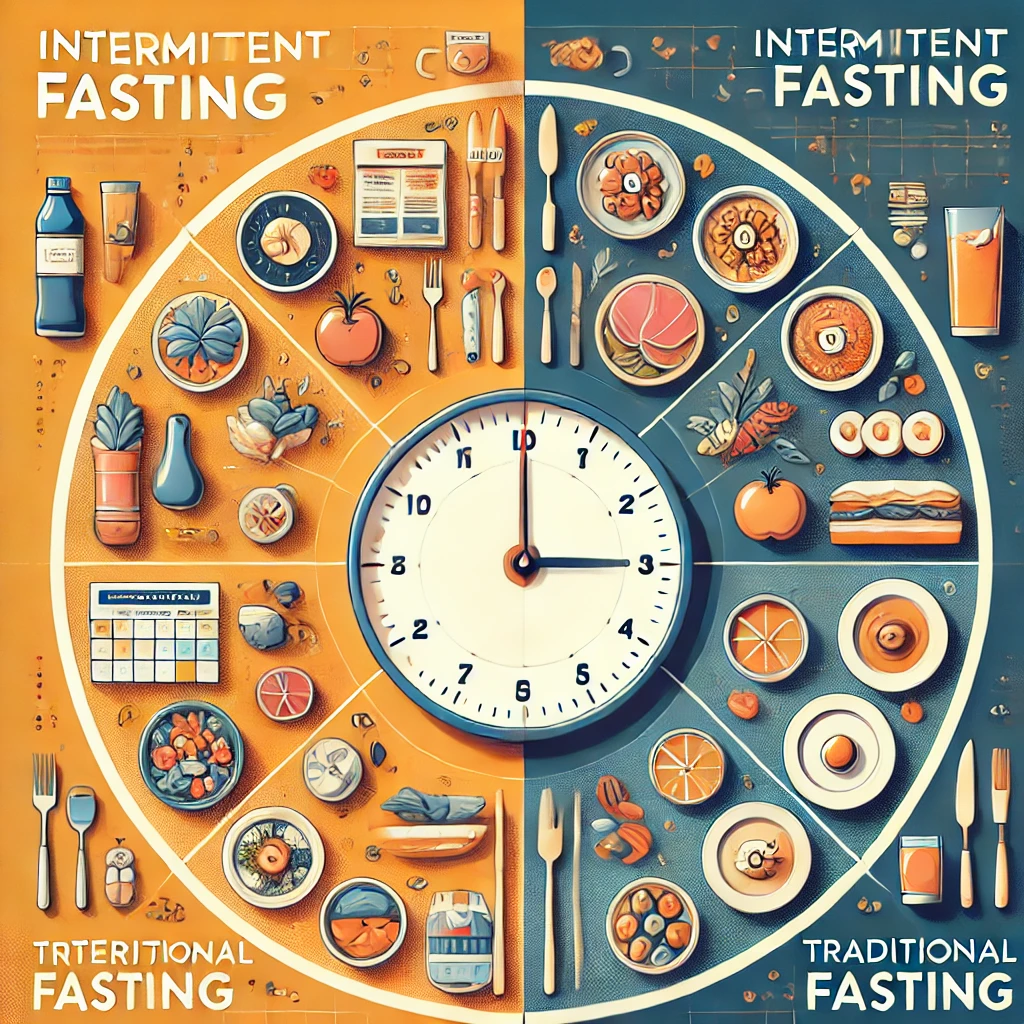
Intermittent Fasting vs. Traditional Diets: Which Works Best?
Trying to lose weight? You’ve probably heard about intermittent fasting and traditional diets. But which one actually works? Let's dive into the science, pros, and cons of each approach.
Understanding Intermittent Fasting and Traditional Diets
What is Intermittent Fasting?
Intermittent fasting (IF) isn’t about what you eat; it’s about when you eat. You cycle between periods of eating and fasting, allowing your body to burn fat more efficiently.
What are Traditional Diets?
Traditional diets focus on calorie restriction and eating balanced meals. Whether it's keto, paleo, or low-carb, these diets often require meal planning and portion control.
How Does Intermittent Fasting Help with Weight Loss?
Skipping meals may sound extreme, but fasting can boost metabolism and enhance fat burning.
Boosts Fat Burning
When you fast, insulin levels drop, making it easier for your body to tap into stored fat for energy.
Supports Hormone Balance
Fasting increases growth hormone levels, which helps maintain muscle mass while burning fat.
Simple and Sustainable
No need to count calories or follow complicated meal plans. You just eat within a set window.
Traditional Diets: Do They Still Work?
Structured Meal Plans
Traditional diets provide clear guidelines on what to eat, making them ideal for those who like structure.
Steady Weight Loss
Slow and steady wins the race! A calorie-controlled diet helps with long-term weight management.
More Variety
Unlike intermittent fasting, you can eat at any time, making social events easier.
Intermittent Fasting vs. Traditional Diets: A Side-by-Side Comparison
| Aspect | Intermittent Fasting | Traditional Diets |
|---|---|---|
| Flexibility | High | Medium |
| Weight Loss Speed | Fast | Moderate |
| Hunger Levels | May feel hungry at first | Controlled hunger with frequent meals |
| Long-Term Sustainability | High for many | Depends on the diet |
Which Diet is Best for You?
Choose Intermittent Fasting If:
- You hate counting calories.
- You have a busy schedule.
- You want quick weight loss results.
Choose a Traditional Diet If:
- You prefer structured meal plans.
- You need steady, gradual weight loss.
- You find fasting difficult.
Combining Intermittent Fasting with Healthy Diet Plans
Why not have the best of both worlds? Eat a nutrient-dense diet while following IF for maximum results.
Quick Weight Loss Recipes
Try protein-packed smoothies or low-carb salads for effective fat burning.
Easy Yoga for Beginners
Gentle yoga improves digestion and reduces stress, complementing your fasting routine.
Mindfulness Practices
Practicing mindfulness while eating can help you avoid bingeing and make better food choices.
Conclusion
Both intermittent fasting and traditional diets have their pros and cons. IF offers quick, flexible weight loss, while traditional diets provide structure and gradual results. The best diet is the one that works for you!
Frequently Asked Questions
1. How can I lose weight fast without exercise and diet?
Intermittent fasting can help! Cutting out late-night snacking and sticking to whole foods can also make a difference.
2. What are the best natural remedies for anxiety and stress relief?
Try meditation, deep breathing exercises, herbal teas, and essential oils.
3. Can I do intermittent fasting while following a keto or low-carb diet?
Absolutely! Many people combine keto and fasting for faster fat loss.
4. What are some simple home workout routines for beginners with no equipment?
Bodyweight exercises like squats, lunges, push-ups, and jumping jacks work great.
5. Does intermittent fasting slow down metabolism?
No, short-term fasting can actually boost metabolism. However, prolonged fasting without proper nutrition may slow it down.